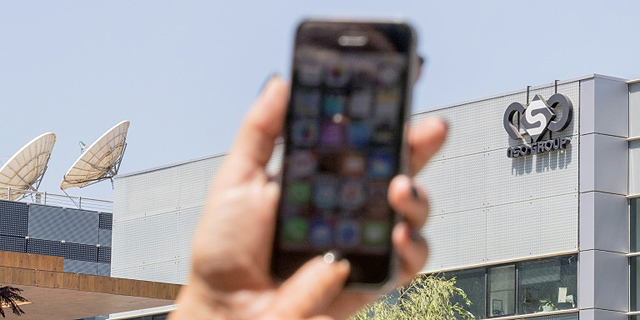
Amnesty report claims NSO’s Pegasus was used to spy on a Moroccan journalist
The human rights group conducted a forensic examination of Omar Radi’s phone and found digital fingerprints of the Israeli cyber company
Omer Kabir | 12:13, 22.06.20
Pegasus spyware developed and sold by Israeli cyber company NSO Group contributed to a sustained campaign by the government of Morocco to spy on Moroccan journalist Omar Radi, this despite the company’s public pledge to prevent its product being used to harm human rights, a new report
by Amnesty International alleges.
According to the report, surveillance of Radi took place for a year, between January 2019 to the beginning of 2020. Radi, an award-winning investigative journalist who worked for various international publications exposing links between corporate and political interests, corruption and breaches of human rights in Morocco, is one of 10 journalists that Amnesty claims is suffering from prolonged harassment by the state. In March, he was handed a suspended four-month prison term for a tweet he posted in April 2019 criticizing the unfair trial of a group of activists.
Amnesty Tech, the global human rights agencies cyber forensic unit, examined Radi’s smartphone and revealed that the device was subject to a series of ‘network injection’ attacks.
“Through our investigation, we were able to confirm that his phone was targeted and put under surveillance during the same period he was prosecuted. This illustrates how human rights defenders (HRDs) may often have to deal with the twin challenges of digital surveillance alongside other tactics of criminalization at the hands of Moroccan authorities leading to a shrinking space for dissent,” reads the report.
According to Amnesty, Pegasus was installed on Radi’s phone using network injections, which allow for the automatic and invisible redirection of targets’ browsers and apps to malicious sites under the attackers’ control. It is considered a more advanced method than the more widely used previous techniques that relied on tricking the user into taking an action in response to a link sent to the user.
A Business Insider report from
January revealed that NSO offers its clients a mobile interception device used to collect data while close to the target and in this way hack into the user’s phone and install the spyware remotely. All that’s needed is to place the antenna-like device in the target’s proximity and wait for them to arrive. “These devices act as portable base stations and impersonate legitimate cellular towers in order to trick phones in the vicinity to connect to them and enable the attacker to manipulate the intercepted mobile traffic,” explained Amnesty.
In its analysis of Radi’s phone, Amnesty found evidence that Pegasus was planted via network injection attacks that occurred on January 27, February 11, and September 13, 2019 and forced his browser to visit an exploitation site. The same site was also used to hack into the phone of Moroccan human rights defender Maati Monjib.